If you think back to all the panicked faces on the hijacked airplane in Ram Madhvani’s superb NEERJA (2016), one of them stands out. And not simply because his fate as a passenger had a direct bearing on Neerja Bhanot’s slow-burning determination: the Indian-American young man, on the way to New York with his feisty grandmother — first introduced bashfully when the old woman asks Neerja if she is single while entering the plane, and soon spiralling into a whirlwind of identity panic (he brandishes his new American passport repeatedly, a death knell of sorts) when the hijackers take over.
The actor behind this terrified face and one of the crucial moments of the film and real-life incident, PRASHANTT GUPTHA, looked a far cry from the few roles I had earlier seen him play. Not immediately recognisable, Guptha has finally reached a stage where he can look back and speak about his work, his life so far and the relentless struggle of being an upcoming actor in Bollywood (or anywhere else).
Tell us a bit about how you decided to take up acting as a profession. You’re originally from New York, is it?
PG: Yes indeed, born and raised in New York, in a beautiful town called Forest Hills. My family hails from Jaipur and has been in the diamond, jewellery and gemstone industry for nearly 50 years now, and my father immigrated to New York back in the 70s to set up his business, in search of the proverbial American dream. Nearly 40 years later, his youngest son shifted back to the homeland in search of his Bollywood dream. Acting may have been a surprise, or shocker, to many who knew me, as it had nothing to do with my family business or within our nearest network and resources. But I guess life plants you in a place where you are best likely to grow into your what your destiny has in store for you. And then one fine day, it will uproot you from that firm place and get you out of your comfort zone so you can evolve onwards to higher pastures and levels. In my case scenario, my experience with acting began from stage in New York, community theatre to be specific. Throughout the year, my parents would ensure I participated any chance to perform in front of an audience, be it dance, drama, public speaking or fashion. Year after year, I felt a strong passion building up. The compliments, applause, creative high, connecting with people…all coupled with my innate excitement towards movies and movie stars, collectively pushed me towards pursuing an acting career. Come college and my father allowed me to pursue acting school provided I also get a ‘normal’ business degree. And I did both, and there began phase 1 of a struggle that would endure a long time to come.
So more or less closer to the character of the Indian-American man with his grandmother you played in ‘Neerja’. How did you land the role?
Oh, you would be shocked at the uncanny resemblance I share with my character from NEERJA. Almost as if the spirit of Neerja Bhanot personally chose me to fill that part, which is actually based on a 20-something man who was a newly naturalised American citizen and was traveling back to New York to settle his grandmother with him. That role of Rahul Kumar bears a lot of similarity with my life, because my father too settled in America right around that time after becoming an American citizen, and as a family, we too always flew Pan-Am Airlines on the same route as the fateful hijacked flight, barring Karachi’s stopover. And when for the first time I got into my character, my wife saw me and was unusually taken aback. Minutes later, she came to me with a picture of my own father from that same time period, and we both couldn’t believe I looked exactly like him.
I landed the role by relentlessly pursuing Ram Madhvani when I first read about him making this film. Months later, when the audition came around, the casting director, Kanika Berry, put me in a scenario which I enacted in a way that immediately impressed her. She knew I was the one to play that role, partly because of my test and appearance, but mainly perhaps I am actually an American and have an accent too.
Your grandmother in the film — tell us a bit about her. Did you rehearse with her to get that distinct Indian embarrassed-grandson-with-spunky-grandmom chemistry right.
Getting into the skin of the character requires immense externalization and internalization. The secret is to be honest to the craft of acting and surrender to the moment (the situation, time period, reality). Frankly there wasn’t any actual rehearsing of those emotions or scenes, but a lot of workshops from a dynamic young man named Vinod Rawat, who was one of the main direction associates on the film. He took us into Neerja’s world, situations of hijacks and was instrumental in fostering a real grandma-grandson bond between myself and my dadi in the film. Honest actors just have to surrender and believe from within, the magic starts unfolding. I bonded very well with my screen dadi and let me tell you — she genuinely cried when I was killed, and more so when my part in the film was over.
Each of the passengers and flight attendants were important in their bit roles. What did Ram make you all do in the workshops? As you were based somewhat on a real-life character, how far could you interpret it in your way?
Indeed I was actually based on a real-life character, and there is a decent amount about him on the net. Prep work happened as mentioned above. I surrender to the role completely. Once on the set, I take about 10 minutes to get into costume and whatever touchup and accessories, and from there, I am that person. And not just then, but his mindset is with me from the day I sign the film to the time it completes. It is a very mentally and emotionally draining process, but also so beautiful in terms of just pure creation and becoming. And yes, there will always be scope and necessity for an actor’s own interpretation, as long as it is within certain boundaries. I guess that space is what will separate honest actors from those just trying to ham through.
I remember the film Identity Card — wasn’t too impressed by it, but it attempted to get across a serious message in a slightly haphazard way. What was it like to play the inspector?
Of all my films prior to NEERJA, IDENTITY CARD is the only film I care to defend. Many were impressed, many weren’t. I remember a stream of notable critics had given it 4 stars and specifically mentioned, “but the surprise of the film is Prashantt Guptha,” whilst many others gave it 2 stars. My defending it has a lot to do with the fact that it had delivered the best it could with such stellar actors, on location in Srinagar, very relevant and poignant subject, and all in a shoe-string budget of under 1 crore. It was a brutally organic and honest attempt. I accept, technically it had many patchy faults, they bothered me too and there is no excuse for them. But I still love the narrative, the treatment, story and a few of its performances. Playing that inspector was quite different from that of what I did in ISSAQ. IDENTITY CARD was shot on location in a make-shift prison, not a drop of makeup on me and in sync-sound. I’d get up 6 am and get into my uniform and live like a cop. My costume, including my pistol and holster, wasn’t given away to a costume department, rather I kept them with me throughout my 18 days there. Perhaps for the first time I had such freedom from my director, Rahat Kazmi, to take this ahead the way I felt, and a lot of guidance also came from actor/director Saurabh Shukla. Fortunately we were both happy with the end result. It was a great experience, very liberating as an actor and eventually came much appreciation, acclaim and even an award from a festival in USA.
Do you audition a lot? Tell us a bit about that culture in Bombay/Aaramnagar.
No, I don’t audition a lot, and there is absolutely no ‘aaram’ in Aaramnagar. I had been through a hundred auditions or more whilst in New York, and I became extremely choosy about that aspect of acting when I landed in Mumbai. It was different in New York, more organized, a freer approach to performing, and usually those who were auditioning or came for the audition, were fairly well qualified for their respective jobs. Within three months here, I saw a very haphazard, at times disrespectful and demeaning approach to the whole audition process. It is a scary process being in a room to be judged by fellow contestants and decision makers. Even as a relative “non-auditioner,” I have been to many, be it commercials or films. Partly out of desperation for some work, or a legitimate means of keeping my bank account active, partly out of a need to have a reason to get out of the house, or perhaps because it was a film and role I wanted. I’ve bagged most of my films on referral, auditioning for or meeting the director directly, and in recent times because the work has started speaking for itself. Ironically, the famous set of casting directors in this city haven’t really shown a keen interest in me. It feels like a jinx at times. Having said all that, casting has become a bonafide and credible element of filmmaking today and that shows a lot of growth in the industry. Let me also say, I rarely ever hear the term “casting couch” going around anymore. Another good sign.
You were the villain in ISSAQ — which wasn’t a very well-reviewed film (I thought it was terrible). However, I could place your face later when I saw you in Neerja. How difficult is it to keep your spirits high after landing a fairly big film and then watching it tank?
I won’t defend this film like I defended IDENTITY CARD. But I know for a fact that the producers poured their heart, soul, passion and a lot of money into the film. Full respect to Pen India’s Gada family and Shailesh Singh. And I will not elaborate on whose fault or what the reasons are of a film not turning out well in the end. Too many factors, and some not in our control. Fortunately, I walked away as a further grown actor whose work did get appreciated. It was a personal breakthrough for me as it became a character I didn’t imagine I’d want to be. Full of jealousy, treachery, lust and the one to eventually lose out. Who wants that? Every new boy comes here to become the quintessential Bollywood hero. I was and am no different. But this role expanded my mental horizon as an actor and it turned out to be a blessing. My two prominent shots in the promo are what got me cast in IDENTITY CARD.
I am surprised, though, that you placed me in ISSAQ after watching NEERJA, as I look drastically different in both, and usually from every film to film.
It is very tough seeing your film tank. You wait years for that one big break, and then it breaks you further. Here is my secret though: Keeping spirits up requires not only extracting the most juice from the finest fruits, but from the rotten ones too. Everything is meant to serve a learning purpose or test you further, perhaps a part of your karmic cycle or time in the cosmos. Keep moving, keep honing, keep searching. Persistence does eventually pay off.
I’ve always been curious. What do upcoming actors do in between film roles? Sometimes, there’s a long gap. How do you sustain a living?
I suspect a lot of actors may have a difficult time answering this question with honesty. Perhaps because the truth may be looked down upon as irresponsible, hopelessly dreamy, lazy or simply good-for-nothing. The problem is once the aspirant actually starts believing this himself/herself when it isn’t actually true, or perhaps in the case of many it is true, and that aspirant falsely feels they are giving it their best out of complacency.
In my case, the gap was LONGGG!!! Financially, I had support from my father in New York. Not the ideal case scenario for an actor who had managed to become a husband and father without any struggle at all. Professionally, I totally made up for that lack of struggle. I was kind of in the middle boat, nor the street struggler without any means, and nor the rich outsider whose family could fund a film. I survived, was given a good living, but professionally I had to endure until I either made it or gave up. It would be too emotionally taxing to get into the nitty gritty of my long-endured struggle and what it did to me. What one can do in the process is stay on top of their game. Read all the trade papers and entertainment magazines to figure out who is doing what, what is being made, get a hold of casting people and filmmakers and pursue them, watch live theatre and great films, read books that teach about cinema and acting, learn new skills in music, public speaking, read poetry, keep fitness levels high and groom yourself well. Keep doing it, and keep the faith. One should also keep an open eye and mind towards other opportunities that come along the way. The toughest aspect is in the choices you make of what to do or not do, how to and how not to do something, with whom and without whom to work with, etc. Also, prayer goes a long way I’ll tell you. Trust me.
Did you ever think of becoming an “Asian” actor in Hollywood?
Still do. And not Asian actor, just an actor in Hollywood. Technically speaking, we are referred to as South-Asian there. You know, people tell me my chances of getting a foothold in Hollywood is now much stronger going in as an Indian film actor. Which means that to go to Los Angeles, I had to first shift from New York to Mumbai. Funny.
I am very eager to work in American cinema and/or television. Actively knocking those doors. Knock knock, anyone there?
Who is your favourite filmmaker/writer here, and what kind of cinema do you like watching?
Barring the obviously nonsensical and content-less films, I like to watch almost everything. Having worked with Ram Madhvani, he is definitely one of my favourites and I also love filmmakers like Tigmanshu Dhulia, Neeraj Pandey, Imtiaz Ali, the kind of films Manish Mundra produces, and whatever comes out of Farhan Akhtar’s company Excel.
Tell me a bit about your new project.
Post NEERJA, my next film I am currently shooting is called IRADA. It features me along with the great Naseeruddin Shah and Arshad Warsi, along with Divya Dutta and Sagarika Ghatge. It has been directed by Aparna Singh, who has worked with Anurag Kashyap on many wonderful films. It has been shot entirely in Punjab, and partly in Gujarat and Manali. The story revolves the ongoing battle between the large corporations backed by greedy politicians and the common man and worker who bear the brunt of health toxicity leading to deadly diseases.
Your name — the extra ‘t’ in your name and ‘h’ in your surname…
Numerological reasons. Yes! Desperate times call for desperate measures. It isn’t a decision most dear to me, but nor do I regret it. I was born as Prashant Kumar Gupta and eventually used the screen name Prashaant Kumar for the longest time. It finally became Prashantt Guptha, and for whatever reason, my progress as an actor did start accelerating thereafter. I’m not remotely suggesting it happened because of the spelling change. Frankly, I feel very disconnected with the way my name appears but it is what is now and I won’t further alter it. I guess stones, numbers, certain rituals all collectively have some form of energy. I won’t deny that. Getting anywhere in life is a combination of mixed factors and you just got to go about doing whatever it is you need to, to get there.


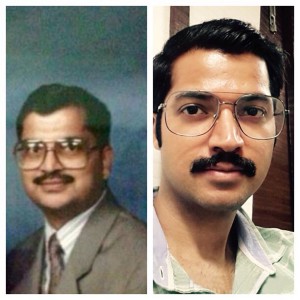
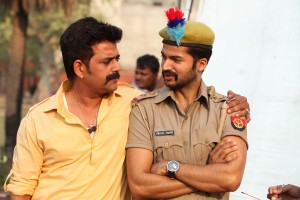
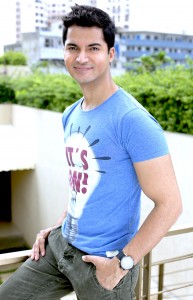
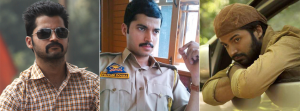
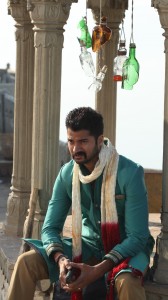
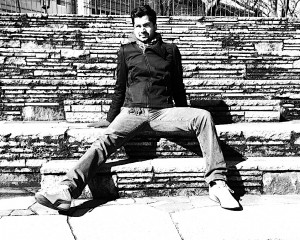

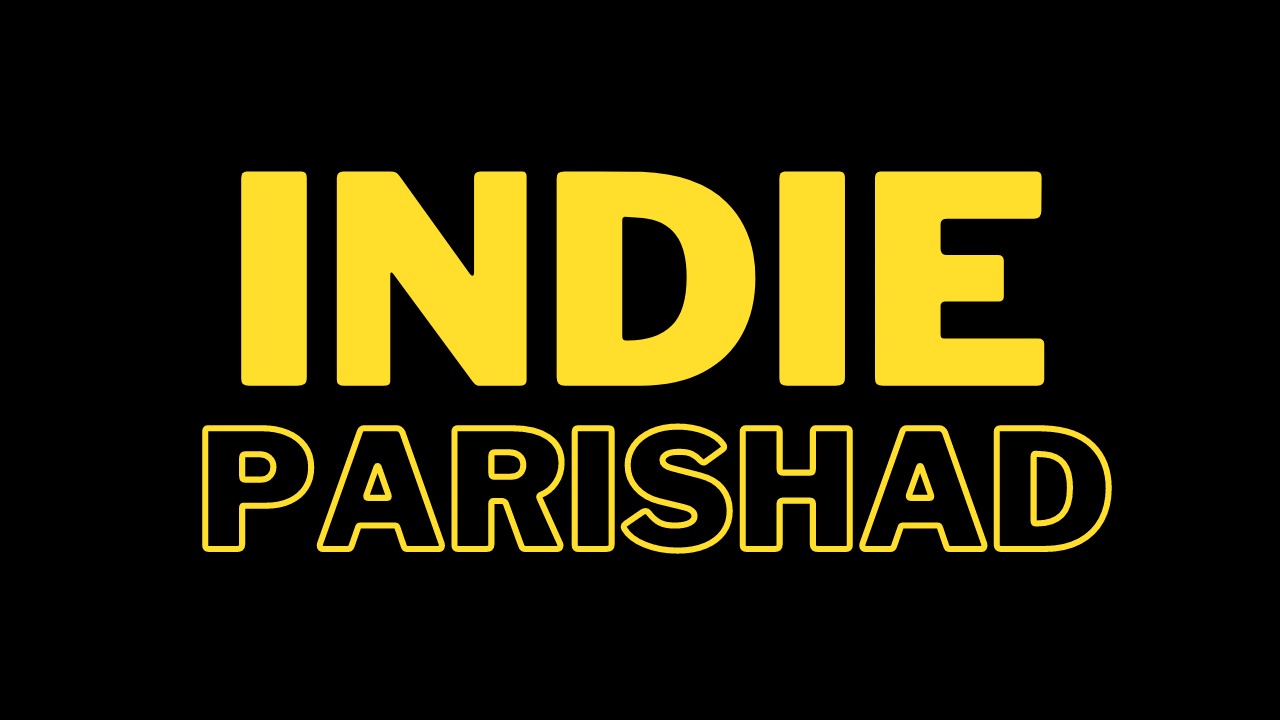
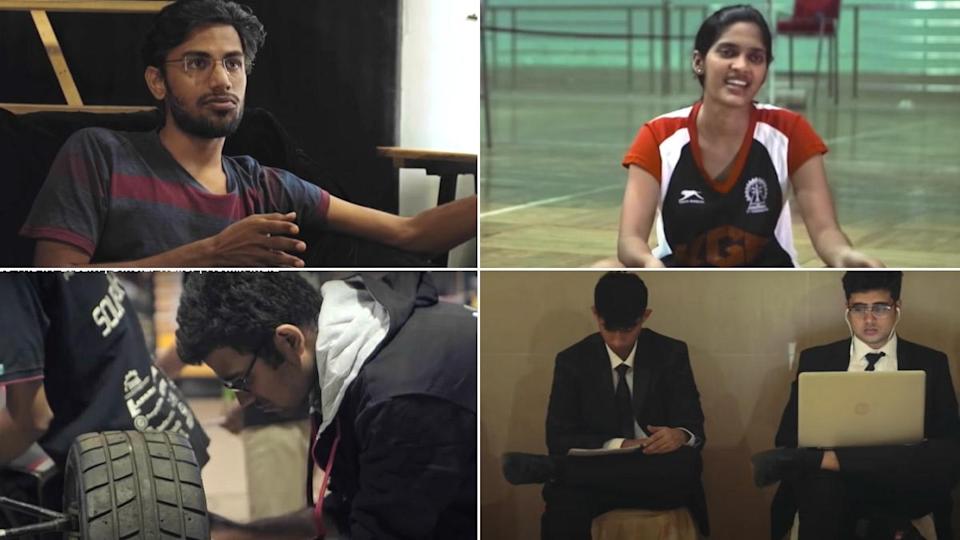
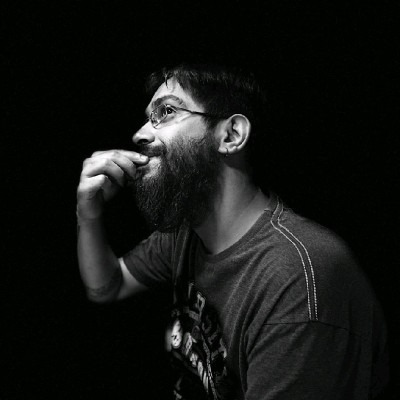

Leave A Comment
You must be logged in to post a comment.